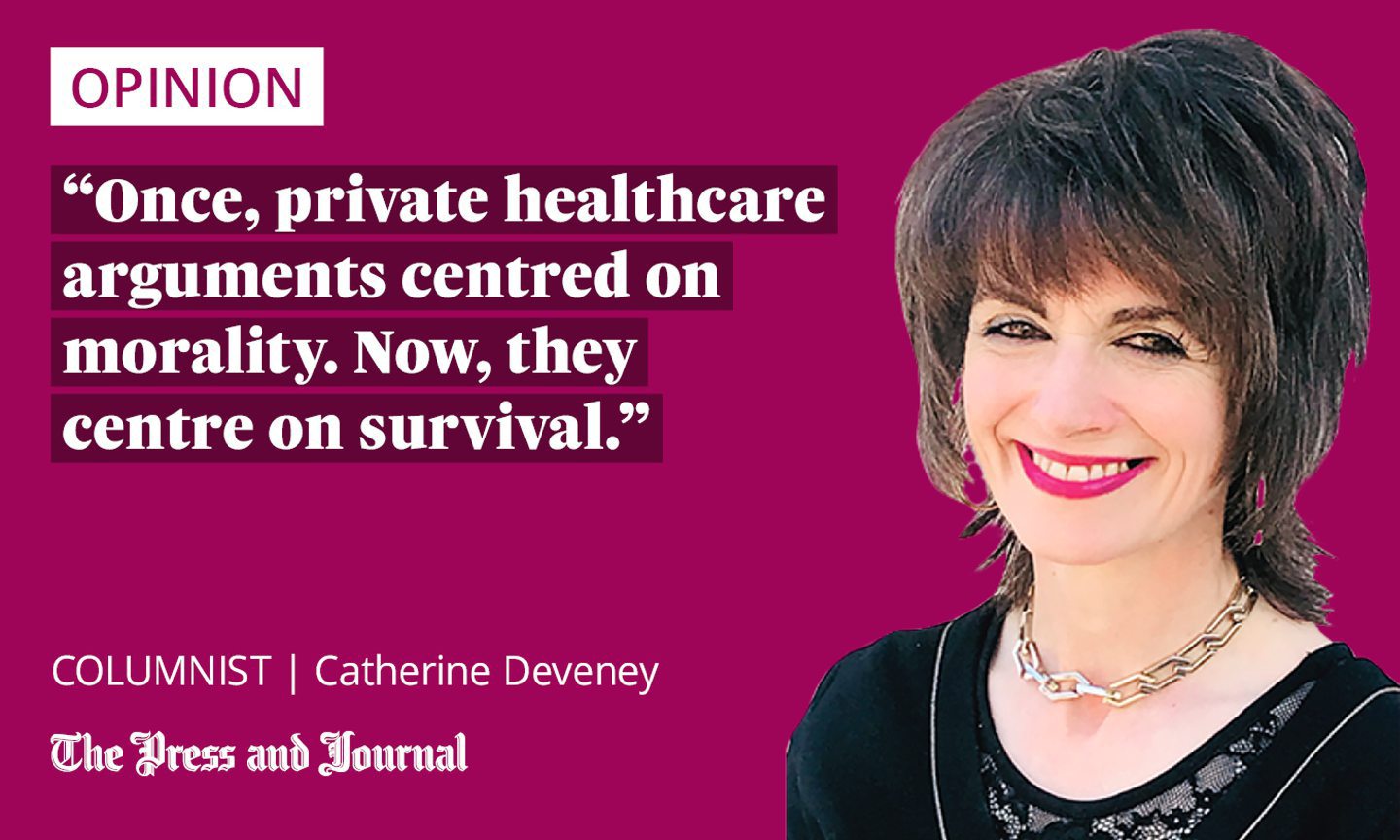How ironic.
It used to be that those who shelled out money for private healthcare only had to worry about the ethics of jumping the public queue.
Were there things money should not be allowed to buy, services that should be an entitlement for all, not a purchase for the few? Private medicine, after all, was assumed to be superior to the NHS: more speedy, more thorough, more diligent. Plus, they employed proper chefs so that mealtimes didn’t look like an advert for Iceland.
The NHS is at the heart of the forthcoming election. Conservative MP Dan Poulter, a psychiatrist and ex-junior health minister, defected to Labour because of the government’s health policies. Or lack of them.
Attempts to reduce waiting lists by subcontracting healthcare to private providers has been presented as a reasonable, something-for-nothing extra with a decent short-term outcome: help patients and help the NHS. But what patients are not told is how few private hospitals have emergency facilities.
When a “routine” operation becomes an emergency, most private patients get transferred to NHS intensive care – via an NHS ambulance. Around one in 1,000 will require such an emergency transfer. Sadly, they don’t always get it in time.

In 2021, the NHS commissioned a routine gall bladder operation for a woman, Nafisa Khan, at a private, Spire healthcare facility. That decision proved fatal.
Earlier this year, Nafisa’s young daughter, Sabrina, told the BBC how her mother was left in a critical condition for many hours. By the time the hospital called an NHS ambulance, so few staff were on duty that cleaners had to let the crew in.
It was the story of an ordinary family, needlessly devastated. So, like many, I take exception to Labour’s shadow health secretary, Wes Streeting, endorsing the reduction of waiting lists through subcontracting care, and describing opposition to his plans as the ramblings of “middle class lefties” who could afford to pay for private care while “ordinary families” like his could not.
The implication is that private healthcare offers some kind of benefit to the working class. Who is he kidding? What benefit is a sticking plaster on a tumour?
Let’s treat the real illness here
Syphoning money into private healthcare does not resuscitate the NHS. It rips the respirator from its gasping jaws. It risks embedding a reliance on private care that threatens the long-term survival of the NHS.
“We have consistently opposed the outsourcing of NHS contracts to the independent sector, on the basis that it threatens the clinical and financial viability and sustainability of the NHS,” says the British Medical Association.
Let’s treat the real illness here. Right now, the NHS spends around £20 billion per year on private care. It relies on agency staff and external providers. Bank nurses get paid more than staff ones. Why is that money not being spent enabling the NHS to offer its own treatments with increased staffing? Where is the long-term benefit in external sourcing? Certainly not in standards of care.
Mental health, for example, has been farmed out wholesale, yet the three biggest providers – Priory (23 deaths), Cygnet (11 deaths), and Elysium (three deaths) – have all been repeatedly criticised in the last decade for giving unsafe care. Are we really to believe that Spire healthcare, which has treated half a million NHS patients, with profits of around £126 million, supplies better, safer, cheaper care than the NHS could provide if resources were increased and better managed?
Today’s NHS is both inadequate and magnificent
The founder of the NHS, Nye Bevan, once said the NHS would last “as long as there are folk left with the faith to fight for it”. Whatever Wes Streeting says, people opposing widespread private provision in the NHS ARE those folk.
It’s particularly baffling, because Streeting relied on the NHS himself when treated for kidney cancer. When health is no longer an abstract concern but a real, concrete disaster, this issue really hits home.
I have sat in hospitals in recent years with a seriously ill young family member, both railing in fury at the NHS’s inadequacies, and crying with gratitude at its sheer magnificence.
Our healthcare system needs lifesaving treatment. Elastoplasts won’t suffice
And I tell Wes Streeting one thing from experience. When you desperately need help, when you are stressed and low and scared, it is not the CEO of some private healthcare company who will metaphorically wipe your tears, or – literally – sit on the floor beside you to listen to your fears, or phone late on a Friday to reassure about results. It is your NHS consultant.
So, let’s get the policies and promises right this election. Our healthcare system needs lifesaving treatment. Elastoplasts won’t suffice.
The splendour of the NHS is its dedication to ensuring free, accountable care at the point of need, not its ability to farm you out to private companies. When that is drained, when there is nothing left but private profit, then there really is nothing left for the folk with faith to fight for.
Catherine Deveney is an award-winning investigative journalist, novelist and television presenter

Conversation